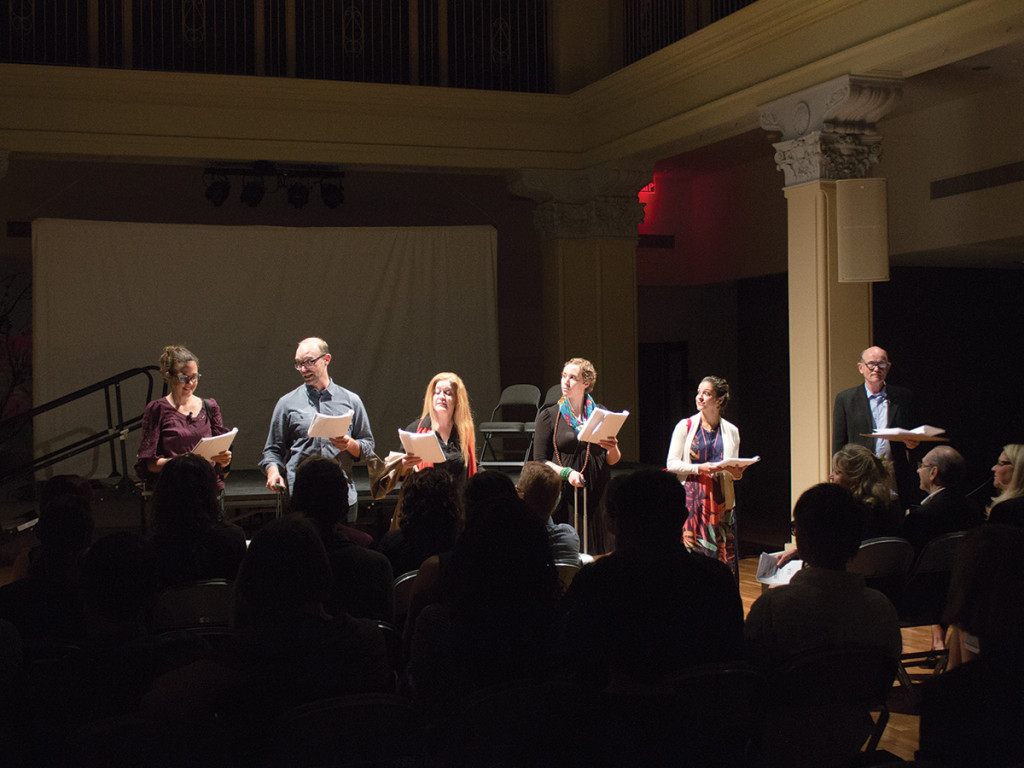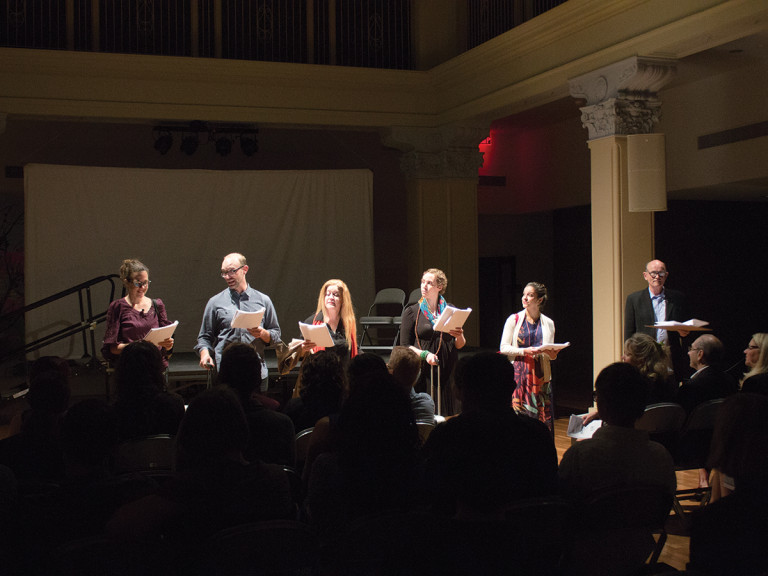
Highlander/ Jeffrey Chang
There are very few places that get as dark and empty as downtown Riverside on a Tuesday night at 8 p.m. When I arrived at the Culver Center to watch “Sea Seed,” a staged reading composed by the Sons of Semele Ensemble, a small trickle of visitors to the evening’s play occasionally went from the darkness outside to the white brightness of the Culver Center.
The third reading in a series, this was the final reading of the play — which has been edited after each audience reading to make it more relatable “based on audience feedback, the company fine-tuned and polished the text.” This reading was the culmination of a two-year creative process on behalf of Dr. Erith Jaffe-Berg and the Sons of Semele Ensemble. Jaffe-Berg, who is the head of Theatre, Film and Digital Production at UCR, was inspired by the themes set forth by fellow faculty member Dr. Susan Ossman, in her book “Moving Matters: Paths of Serial Migration.” All the characters — as well as symbols and ideas from the play — embody what it is like to be a serial migrant (a term coined by Ossman to define a person who “travels between three or more countries, living in different languages and experiencing repeated patterns of movement and migration”).
When the lights faded and the cast stood in a line and started to remark on the strange things people bring to the airport: a change of underwear in the carry-on, an emergency skirt, I started immediately to connect those things with my own experiences of traveling. However I feel as if someone who has little experience with international travel may lack a certain connection with the play. It is majorly concerned with a sort of cosmopolitan migratory experience which most university students see little of.
It was a staged reading of the play, which means that the cast carried their scripts around and had a strange lack of props, which was only obvious to me at two points: when the cast members used a Kleenex box to symbolize a piece of art, and when they were allegedly proposing a toast with invisible glasses. Most of the time, the use of folding plastic chairs was not much of a distraction, as sooner or later I found myself more immersed in what the characters were saying and doing than the esoteric props.
